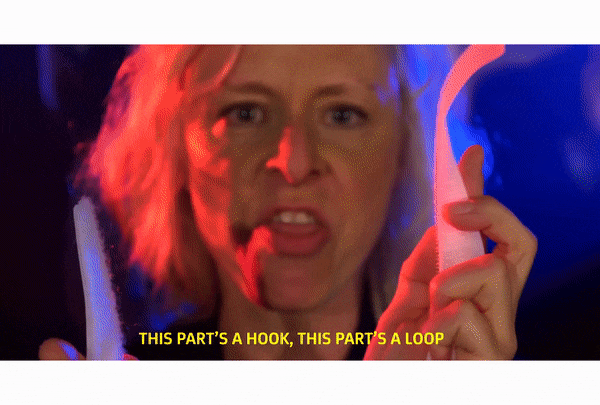Cold open: slow zoom on a solemn man, backed by a group of darkness-shrouded figures and backlit by a pair of spotlights, staring into the camera behind a mic stand in a smoky room. “We’re a company that’s so successful, that everywhere you go,” he sings, “you see the scratchy, hairy fastener, and you say ‘hey, that’s velcro!'” It’s a simple cause that’s gathered these lawyers to put on a “We Are The World”-esque benefit performance: they say, “don’t say velcro.”
VELCRO® Brand’s legal team put out the rousing power ballad to clarify things about their product—it’s “VELCRO® Brand straps” if they make it, and “hook and loop fasteners” if anyone else does. Using “velcro” as an adjective or verb is similarly forbidden.
They acknowledge the absurdity in the ad itself, but it addresses a very real fear for the company. In the second verse, they sing, “We know this seems ridiculous, this is a first-world situation . . . and we’re asking you not to say a name we’ve spent 60-plus years to build, but if you keep calling these ‘velcro shoes,’ our trademark will get killed!”
There’s solid precedent for brand names being genericized: “flip phone,” “aspirin” and “teleprompter” all used to be trademarked terms, but were legally declared generic and unenforceable due to becoming the common name for the product itself. Velcro’s music video pleas on behalf of other brands at risk of losing their identities, begging viewers not to say “Band-Aid,” “Clorox” or “Rollerblade,” either.
Velcro isn’t the first brand to get finicky about public use of their trademark—LEGO is notoriously picky about spelling (it’s “Lego bricks,” not “Legos”).
While brand safety has been on the minds of many marketers in recent months, having a brand to keep safe is a privilege that Velcro is trying desperately to protect. So remember this holiday season: don’t say velcro.

